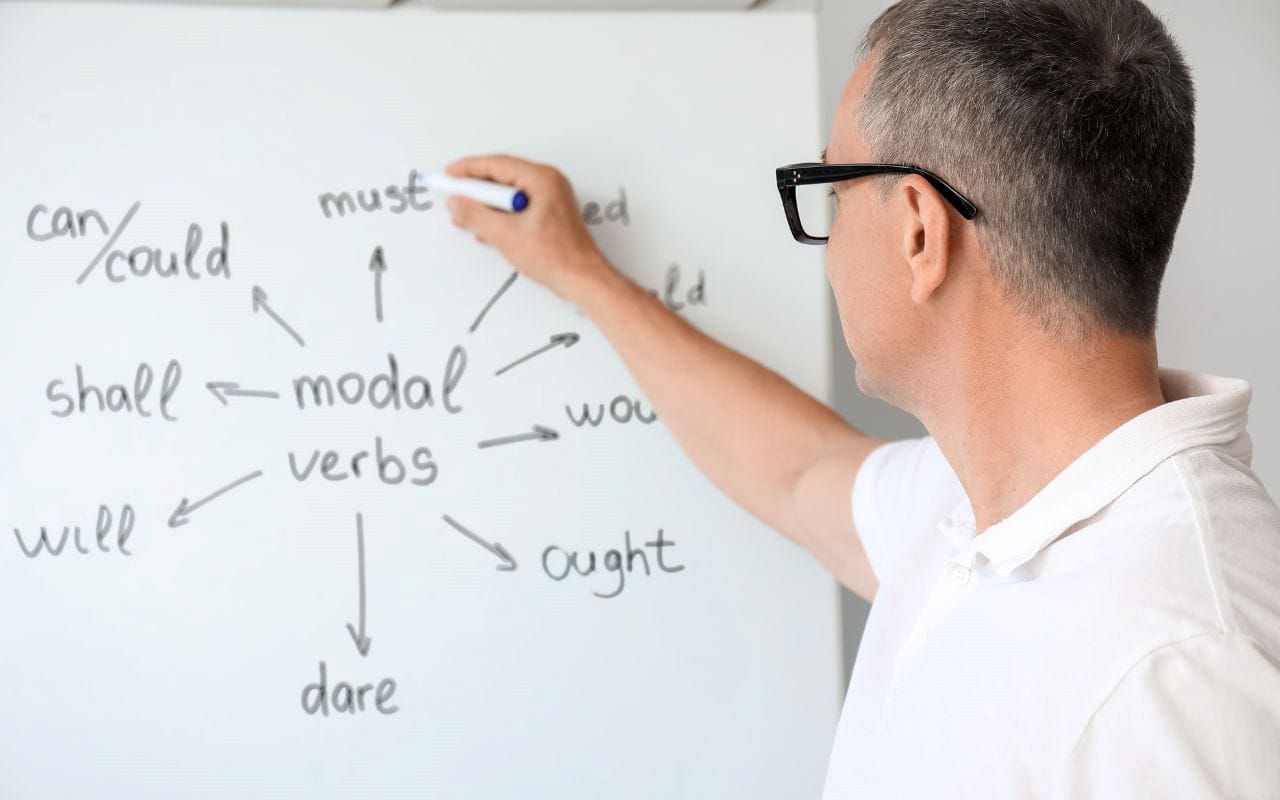What Is an Independent Clause?

Have you ever wondered what makes a sentence stand on its own? In grammar, it's called an independent clause. Think of it as the fundamental building block of a sentence that stands alone as a complete thought, having a subject and a verb. Understanding what an independent clause is opens doors to writing clear and effective sentences that precisely convey your thoughts in your writing.
In this guide, I'll talk about the importance of studying independent clause structures and functions and help you learn the basics of sentence construction. As a writing major in college, consistently revisiting essential grammar tips is the best way to stay in shape as a writer, captivate readers, and convey your ideas with clarity and confidence.
Whether you're a seasoned writer seeking to refresh your skills or a novice enthusiastic wishing to elevate your writing, this guide will help you exercise the power of using independent clauses with clear intention.
Register on Bold.org for more writing tips and leverage their scholarship search tool to uncover a myriad of exclusive scholarship offerings.

Defining the Basics: What Is an Independent Clause?
An independent clause is a whole idea that can stand alone as a sentence. For example, "I enjoy writing novels." In this sentence, there is a:
- Subject: "I"
- Verb: "enjoy"
- Complete idea: "writing novels."
An independent clause can communicate meaning independently without relying on any other additional clause (remember that a clause in grammar is a group of words containing a subject and a verb). It can function within a sentence as a standalone statement or as part of a more complex structure, and it is critical for achieving clarity in communication.
Understanding the Components: Independent and Dependent Clauses
Let's look at two other clauses to reinforce what we have learned so far and to solidify our understanding of how sentences are structured and how different types of clauses function:
Dependent clause: We can use an opposite example to explain what a dependent clause is: "Although I enjoy writing novels..." [Notice that it is not a complete thought]
In this sentence, in order to express a full idea, the sentence requires additional information to form a complete sentence. This is a dependent clause, a group of words containing a subject and a verb, but it is not a complete idea.
Independent clause: Remember that an independent clause is the basic unit of a sentence (e.g., I enjoy writing novels). It contains a subject, a verb, and a complete idea. It can be used as a standalone statement or as part of a more complex sentence structure with another dependent or a second independent clause.
The autonomy of an independent clause grants meaning to a sentence without reliance on additional clauses.

Independent Clause: The Core Element
An independent clause is the core element of sentence structure. It is the foundation for connecting words and constructing complete, meaningful sentences. Understanding the significance of simple sentence analysis that expresses a complete thought can help construct clear, coherent, and impactful writing.
Let's delve deeper into the central role of an independent clause in grammar and sentence formation:
Definition and Characteristics
One key feature of an independent clause is their ability to be punctuated as separate sentences, demonstrating their self-sufficiency in conveying complete thoughts. In this scenario we could write two independent clauses.
- For example: "I enjoy writing novels, but I prefer reading them."
This example contains two independent clauses ("I enjoy writing novels" and "I prefer reading them") connected by the coordinating conjunction "but," in which each sentence fragment expresses a complete thought.
Remember: An independent clause, often called a standalone sentence, is a group of words that express a complete thought and contain both a subject and a verb. Independent clauses stand as the cornerstone of clear and effective communication, possessing the ability to convey complete ideas on their own while also playing a vital role in sentence structure and coherence.

Identifying Independent Clauses in Sentences
If you want to recognize an independent clause, start by identifying specific characteristics and patterns.
First, independent clauses usually begin at the beginning of a sentence or follow punctuation marks such as periods or semicolons.
Second, independent clauses often contain independent marker words like "however" or "meanwhile." This marker word is a signal of the start of a new clause.
Also, coordinating conjunctions such as "and," "but," or "or" can be used to connect independent clauses within compound sentences and other clauses. By recognizing these indicators, you can distinguish independent clauses from dependent clauses or sentence fragments.
- For example: "Although I enjoy writing novels, I find reading them more relaxing."
Here, the first clause "Although I enjoy writing novels" is a dependent clause, while the second clause "I find reading them more relaxing" is an independent clause, also known as nonrestrictive clauses that provides additional, non-essential information.
Are you an aspiring writer? Check out these writing scholarships today!

Dependent Clause: The Supportive Element
The role of dependent clauses is to provide extra information or more context to the main idea expressed in an independent clause. So, if you consider a sentence like "I enjoy hiking" and want to provide more information, that additional information would be a dependent clause.
Understanding Dependent Clauses
Dependent clauses generally cannot stand alone as complete sentences; instead, they rely on another complete sentence that stands on its own. Dependent clauses can support the main idea of an independent clause in a sentence by adding detail, explaining relationships, or providing conditions, thereby enhancing the overall clarity and depth of the sentence.
Differentiating Between Independent and Dependent Clauses
Distinguishing between independent and dependent clauses involves understanding how they function within sentences. Once more, while independent clauses express complete thoughts and can stand alone as sentences, dependent clauses cannot.
Independent and dependent clauses often begin with dependent marker words such as "although" or "when," which indicate their secondary association with the main clause.
Get Matched to Thousands of Scholarships
Create your Bold.org profile to access thousands of exclusive scholarships, available only on Bold.org.
Create Free ProfileLet's look at these two examples that form a full simple sentence with both (independent and dependent clauses):
- Main Clause (Independent Clause): "I love hiking in the mountains."
- Dependent Clause (Supportive Element): "When the weather is clear"
Full-sentence: "When the weather is clear, I love hiking in the mountains."
Distinguishing between dependent and independent clauses helps in understanding basic sentence structure. While independent clauses can stand alone and express complete thoughts, dependent clauses rely on other sentences for context or condition.
Examples like "I love hiking in the mountains" and "When the weather is clear" show the relationship of loving to hike the mountains with exceptions. This exception is separated by the connecting word "when," which functions as a dependent marker word, showcasing how dependent clauses provide additional information within the sentence.
Many college essays require a specific format like MLA. Check out what MLA format is and how to properly incorporate it in your essays!

Structure and Function of Independent Clauses
Independent clauses form the foundation for sentences, providing the central ideas or actions that drive the message forward. By expressing complete thoughts with both a subject and a verb, they ensure clarity and coherence in communication.
Here are some examples of Independent Clauses in Context:
- "Paco enjoys running."
- "The sun was shining brightly."
- "They went for a walk in the woods."
- "He studied diligently for the exam."
- "The cat sat lazily on the couch."
In these examples, the independent clause stands alone as a complete sentence. It conveys a particular idea or action without the need for additional clauses (more explanation). These independent clauses communicate clear and concise messages within various contexts.
Are you taking the SAT? Check out these SAT grammar rules to stay on top of your grammar before the SAT!

Types and Variations of Independent Clauses
Although one independent clause initially appears straightforward, it is important to acknowledge the various nuances and complexities in crafting complete sentences. Understanding the diverse forms and structures sentences can convey will help you build your writing from the ground up.
Simple Independent Clauses
Simple independent clauses contain a subject and a single verb, expressing a straightforward idea or action. They are the most basic independent clauses and stand alone as complete sentences.
- Example:"He runs."
Compound Independent Clauses
Compound independent clauses consist of two or more independent clauses hooked together by coordinating conjunctions such as "and," "but," or "or." These clauses allow for combining multiple ideas or actions within a single sentence.
- Example:
"He runs, and she swims."
Complex Independent Clauses
Complex independent clauses consist of an independent clause hooked with at least one subject, or more dependent clauses. These clauses provide additional detail, explanation, or condition to the main idea. They present a more complex structure by incorporating subordinate elements into the sentence.
- For example:
"While he runs, she swims."
These elements offer more detail, explanation, or conditions to the main idea, resulting in a more intricate sentence structure.

Combining Independent Clauses: Coordinating Conjunctions vs Subordinating Conjunctions
Once we understand coordinating and subordinating conjunctions, we can blend independent clauses smoothly. Each conjunction has a unique role in shaping sentence structure and enhancing the reader's understanding of your writing.
Coordinating conjunctions:
A Coordinating conjunction allows a sentence to connect independent clauses of equal importance. Let's use an example in which both ideas are of equal importance and connected through a conjunction.
Independent Clauses:
- "Sheila enjoys gardening."
- "John prefers hiking."
Combined with a Coordinating Conjunction:
- "Sheila enjoys gardening, and John prefers hiking."
In this example, "and" joins the two independent clauses ("Sheila enjoys gardening" and "John prefers hiking") to form two clauses that form a compound sentence.
Subordinating conjunctions:
In contrast, subordinating conjunctions (e.g., "although," "because," or "while") introduce dependent clauses (the sentences that feel incomplete) to provide more detail or context to the main idea expressed in the independent clause.
By employing subordinating conjunctions, writers can create complex sentences that incorporate both independent and dependent clauses. Subordinating conjunctions indicate the relationship between the dependent and independent clauses, establishing conditions, contrasts, or connections within the sentence.
- Example: "While he runs, she swims."
Subordinating conjunctions introduce dependent clauses. They provide more information about the main idea expressed in the first independent clause. Think of them as creative seasoning, a special ingredient that enhances the flavor and depth of your writing by infusing it with details and intricacies.
Preparing for a college essay? Learn how to write a thesis statement so you're well-prepared!

Common Mistakes and Pitfalls
Proper punctuation and conjunctions are essential for separating independent clauses and creating clear, concise sentences.
Let's try to understand the distinction between fragments and independent clauses and the importance of proper punctuation in avoiding run-on sentences (sentences that continue beyond what is grammatically correct without clear breaks between separate thoughts or ideas).
Unless you are writing something more complex and creative, respecting these rules is crucial for improving writing clarity and coherence.
Fragments vs. Independent Clauses
One common mistake while writing is confusing fragments with independent clauses. Fragments are incomplete sentences that don't have either a subject, a verb, or both.
- For example: "While writing a novel."
On the other hand, independent clauses are complete sentences that express an entire thought. Each independent clause in your writing stands alone as a complete sentence to avoid disruption of the clarity of your writing.

Run-On Sentences: Independent Clauses Without Proper Punctuation
Another common mistake is writing run-on sentences. These happen when two clauses or more independent clauses are joined without proper punctuation or conjunctions.
Run-on sentences can make writing confusing and challenging to follow. Proper punctuation, such as commas and conjunctions like "and" or "but," are necessary to separate independent clauses and create clear and grammatically correct sentences.
- Example of a run-on sentence: "I woke up late this morning I missed the bus so I had to walk to school, but it started raining halfway there I got soaked and arrived at school late."
In this example, multiple independent clauses are joined together without proper punctuation or conjunctions, resulting in a run-on sentence. Let's see it again with proper punctuation.
- Example adding proper punctuation: "I woke up late this morning. I missed the bus, so I had to walk to school, but it started raining halfway there, so I got soaked and arrived at school late."
Identifying and rectifying run-on sentences is important for maintaining coherence and readability in your writing.

Expanding Sentences with Independent Clauses
Expanding sentences with independent clauses allows writers to craft complex ideas that are deep and varied while still being clear and easy to understand. This is a way to enrich our writing and engage readers in a more comprehensive topic exploration.
Enhancing Clarity and Coherence
Incorporating independent clauses into sentences can improve clarity and coherence by providing additional facts, explanations, or emphasis. By incorporating independent clauses, writers can develop their ideas, present supporting evidence, or show contrasting viewpoints, enriching the overall quality of their writing.
Crafting Complex Sentences for Depth and Variety
Complex sentences add sophistication to writing, demonstrating a mastery of language and an ability to convey intricate concepts with finesse.
Crafting complex sentences with independent clauses adds variety, allowing the writer to express complex ideas within a single sentence. By combining independent clauses with coordinating or subordinating conjunctions, writers can create sentences that weave together multiple thoughts or actions, offering a richer and more engaging reading experience.

Frequently Asked Questions: What Is an Independent Clause?
What distinguishes an independent clause from a dependent clause?
An independent clause is a group of words that can stand alone as a complete sentence. It contains a subject and a verb, expressing a complete thought. In contrast, a dependent clause, also known as a subordinate clause, cannot stand alone as a complete sentence.
It relies on an independent clause to form a complete idea, and often, the sentence begins with a subordinating conjunction (e.g., "after") or a relative pronoun (e.g., "that," "which," "who"). Dependent clauses typically provide additional information, context, or conditions to the main idea expressed in the independent clause.
How can I identify independent clauses in a sentence?
Independent clauses can function as standalone sentences and express a complete thought. They contain both a subject and a verb, and they often begin at the beginning of a sentence or follow punctuation marks such as periods or semicolons. You can always look for coordinating conjunctions (e.g., "and," "but," "or") that connect independent clauses within compound sentences to express a complete thought within a sentence.
Can a sentence contain multiple independent clauses?
Yes, a sentence can contain multiple independent clauses. When multiple independent clauses are combined within a sentence, it's called a compound sentence. These independent clauses are typically joined together by coordinating conjunctions or punctuation marks such as commas and semicolons.
Each independent clause in a compound sentence contributes to the overall meaning and structure of the sentence, allowing for the expression of complex ideas and relationships independent of one another.
How do I avoid run-on sentences in my writing?
Run-on sentences occur when two or more independent clauses (sentences that express a coherent idea) are joined together without proper punctuation or conjunctions. To avoid them, start by identifying independent clauses within your sentences.
You can use appropriate punctuation, such as periods, commas, or semicolons, to separate independent clauses. Consider breaking long, complex sentences into shorter, clearer ones to improve readability. Read your writing aloud or have someone else review it to catch any run-on sentences that may need to be corrected.
Create a Bold.org profile and use the scholarship search feature to access more information for college students and hundreds of exclusive scholarships.